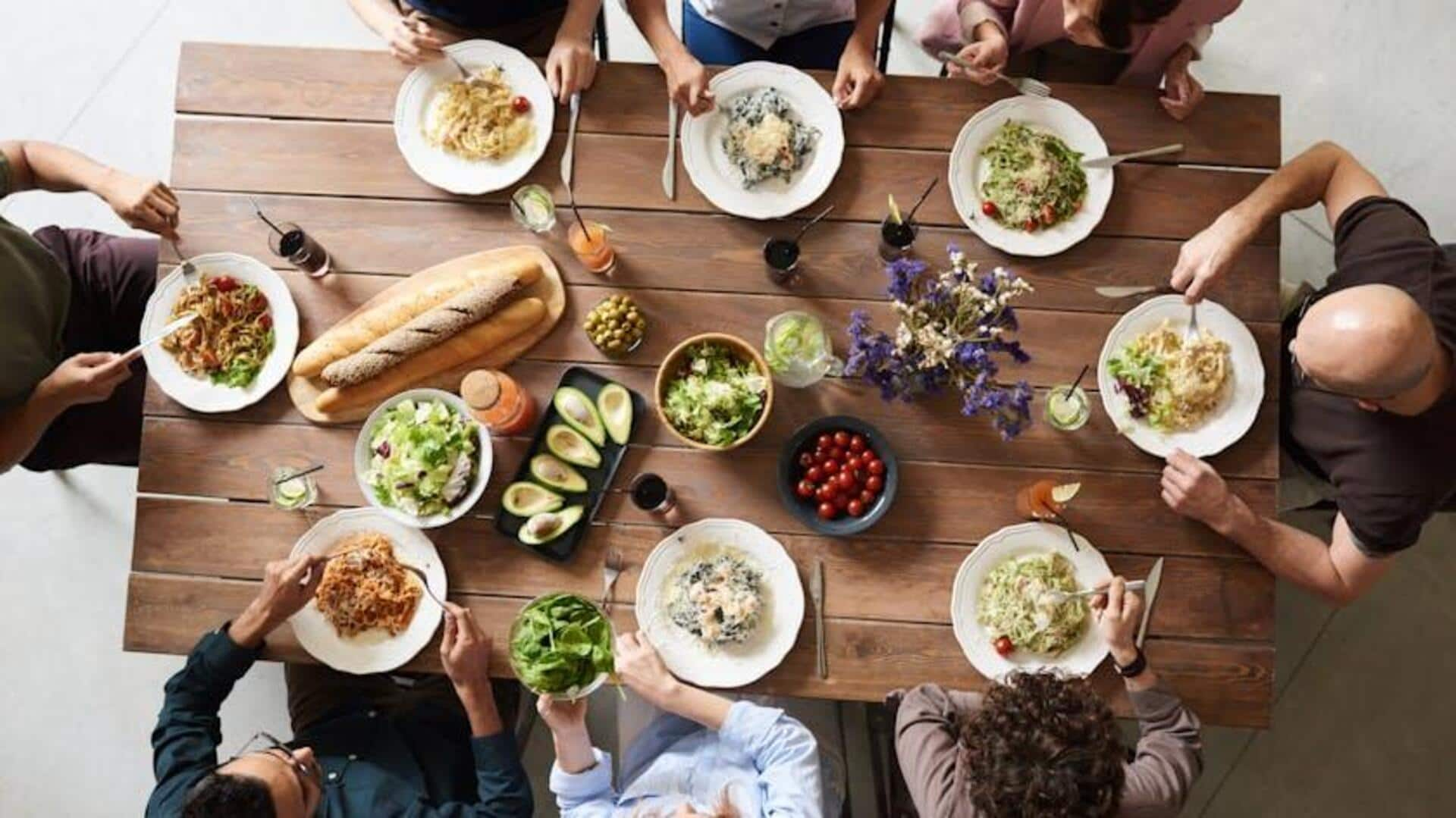
Dining etiquette tips everyone must know
What's the story
Dining out in different cultures can be a wonderful experience, but it also comes with the responsibility of being aware of various etiquette norms to avoid any unintended faux pas. Knowing these customs can make your dining experience all the more enjoyable and demonstrate your respect for the culture you are mingling with. Here are some handy tips to help you avoid cultural mishaps.
Attire 1
Dress appropriately for the occasion
When eating out, dressing appropriately is important as it shows respect for the establishment and its patrons. In many cultures, formal attire is expected in upscale restaurants, whereas, casual wear can be accepted in more relaxed settings. Researching the dress code in advance or asking locals can save you from awkward situations. Always err on the side of being slightly overdressed rather than underdressed to ensure you fit in comfortably.
Tip 1
Understand table manners and customs
Since table manners vary a lot from culture to culture, you should be aware of them. For example, some countries expect you to wait for the host to start eating, before you can dig in. In others, certain utensils or even hands may be preferred to cutlery. Observing those around you and following their lead can help you adapt quickly and avoid any potential missteps during your meal.
Tip 2
Be mindful of tipping practices
Tipping practices vary greatly from country to country. In some countries, tipping is an insult since service charges are already included in the bill; in some, leaving a tip of 10% to 20% is the norm. Before dining out, make sure you learn the local tipping customs so that your gesture of appreciation is in accordance with cultural norms.
Tip 3
Respect dietary restrictions and preferences
Being mindful of dietary restrictions and preferences prevalent in different cultures reflects thoughtfulness and respect when eating together. Some cultures abide by certain dietary laws or preferences that determine what foods are eaten or completely avoided. While hosting or attending a meal with people from different backgrounds, inquire about any dietary requirements beforehand to ensure everyone is comfortable.
Tip 4
Learn basic phrases for polite interaction
Learning a few basic phrases like "please," "thank you," and "excuse me" in the local language can go a long way in creating positive interactions during your dining abroad. Even if you don't pronounce them perfectly, the fact that you're trying reflects respect towards local customs and usually leads to warmer hospitality from restaurant staff members who appreciate your effort at communication.